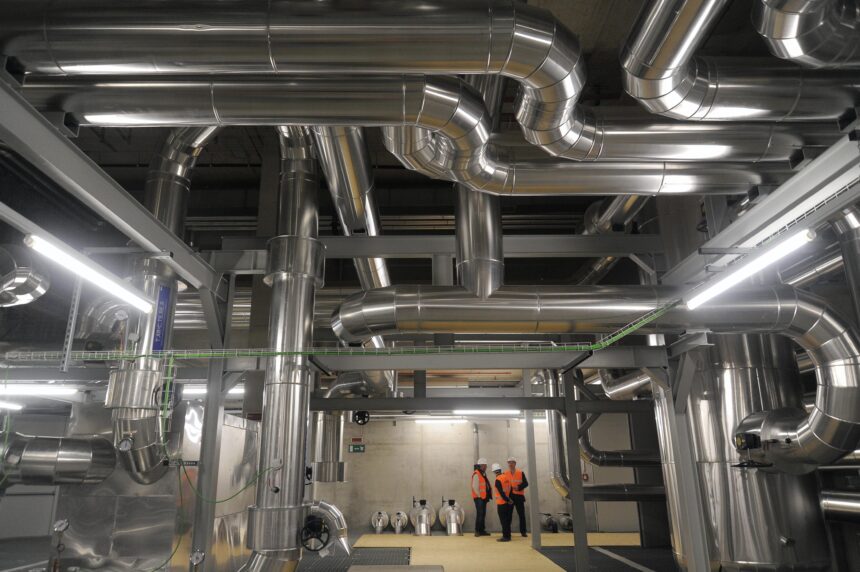With rising demand for data center capacity comes an increased urgency in the challenge of powering and cooling the facilities with no loss of uptime.
Our top 10 data center power and cooling stories examine liquid cooling and chip cooling developments in addition to the practicalities of underwater data centers, the use of renewables in data centers, and how excess data center heat can be used to power nearby homes.
The data center market is seeing unprecedented growth in liquid cooling deployments. Data center operators are concentrating their investments on higher-density equipment earmarked for AI workloads – the class of server that should be choice candidates for liquid cooling deployments. However, demand for high-efficiency air cooling is also increasing. This article explores this phenomenon.
Data centers consume a huge amount of energy, and chip cooling alone can account for 40% of overall energy usage in a data center. As such, researchers are exploring chip cooling methods to mitigate the energy burden and improve efficiency within them. This article looks at the research by Purdue University, a recipient of a $1.8 million grant under the COOLERCHIPS program, which aims to revolutionize chip cooling methods through innovative approaches such as two-phase jet impingement and direct liquid contact.
The COOLERCHIPS initiative is pioneering innovative cooling technologies that have the potential to improve data center cooling, reduce energy consumption, and extend the lifespan of electronic components. This in-depth article focuses on the evolving complexity of thermal design power, dissecting its significance, its far-reaching implications in the realm of contemporary electronics, and all the advancements that shape this activity.
Interest in underwater data centers is growing following Microsoft’s successful deployment of Project Natick several years ago. While there are great benefits to underwater data centers – including abundant real estate, low cooling costs, and sustainable energy sources—companies will need to overcome significant challenges of hardware maintenance, network connectivity, physical security, and energy sourcing.
There is renewed interest in excess heat generated from cooling data centers being used to provide heating to nearby homes. While data centers have been doing this on a small scale for more than a decade, sustainability efforts and rising energy costs have increased demand. Currently, it is predominantly Nordic countries leveraging this opportunity, but increasingly, regions with district heating systems are looking to expand them.
Data center cooling is not as simple as it might seem. This article explores five ways you can improve the efficiency and effectiveness of your cooling systems – namely, considering liquid cooling, achieving the correct rack space utilization, optimizing rack placement, monitoring temperature and cooling data, and looking at the impact of the data center’s roof.
Although many data centers now source much of their energy from solar, wind, and other low-carbon renewables, most data centers can’t operate from renewable energy sources alone. Some sources, like wind and solar, are weather-dependent, and clean energy sourcing can also take up much more physical space, potentially at some cost to the natural environment. However, investing in clean energy is still crucial to data centers’ sustainability strategy.
Sales of data center power and cooling equipment and other physical infrastructure have increased significantly, boosted by supply chain improvements, service providers expanding their global data centers to meet high demand, and enterprises modernizing their on-premises data center infrastructure. Eaton, Huawei, and Legrand round out the top five market share leaders.
The COOLERCHIPS initiative is stepping up to the challenge of improving data center cooling technology by awarding $40 million in grants to 15 enterprise and academic projects. The University of Florida is one recipient of the COOLERCHIPS grant, and it is using its funding to develop a solution for cooling CPUs and GPUs. Read about this research here.
Germany’s new law, the Energy Efficiency Act, requires data centers to use less energy and reuse waste heat to reduce German energy consumption. It will affect hundreds of data centers in Germany alone and may influence future legislation elsewhere.




